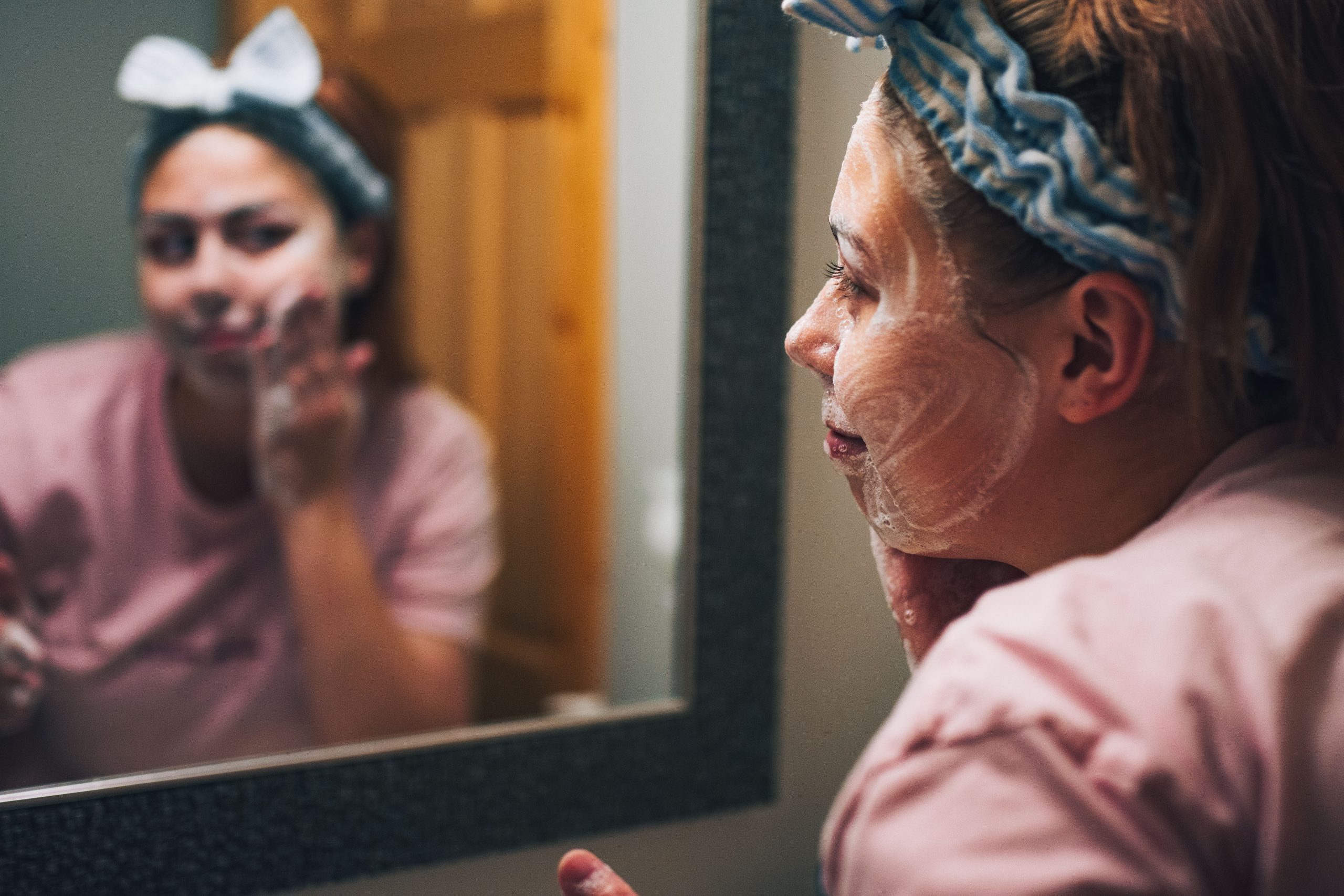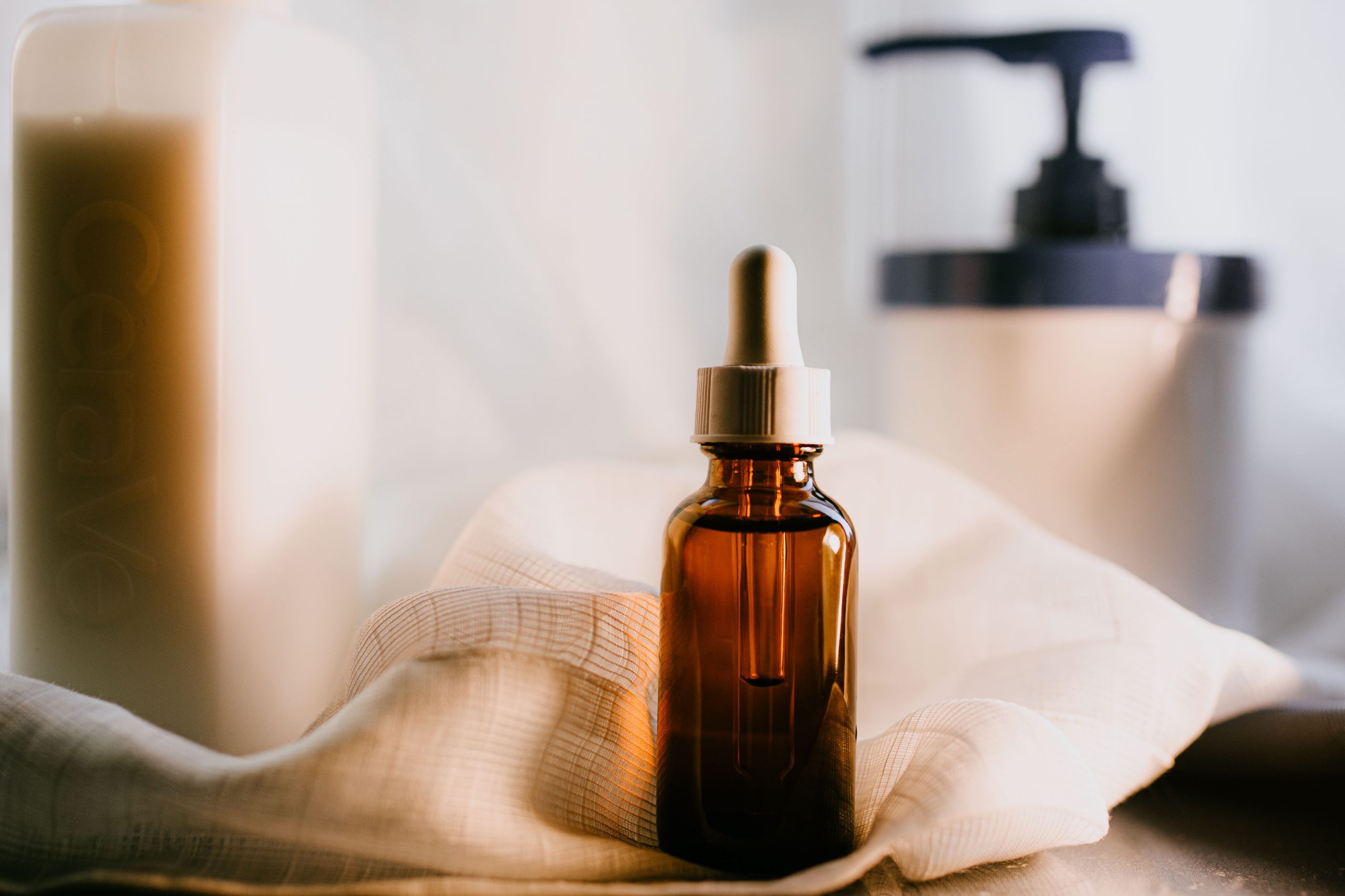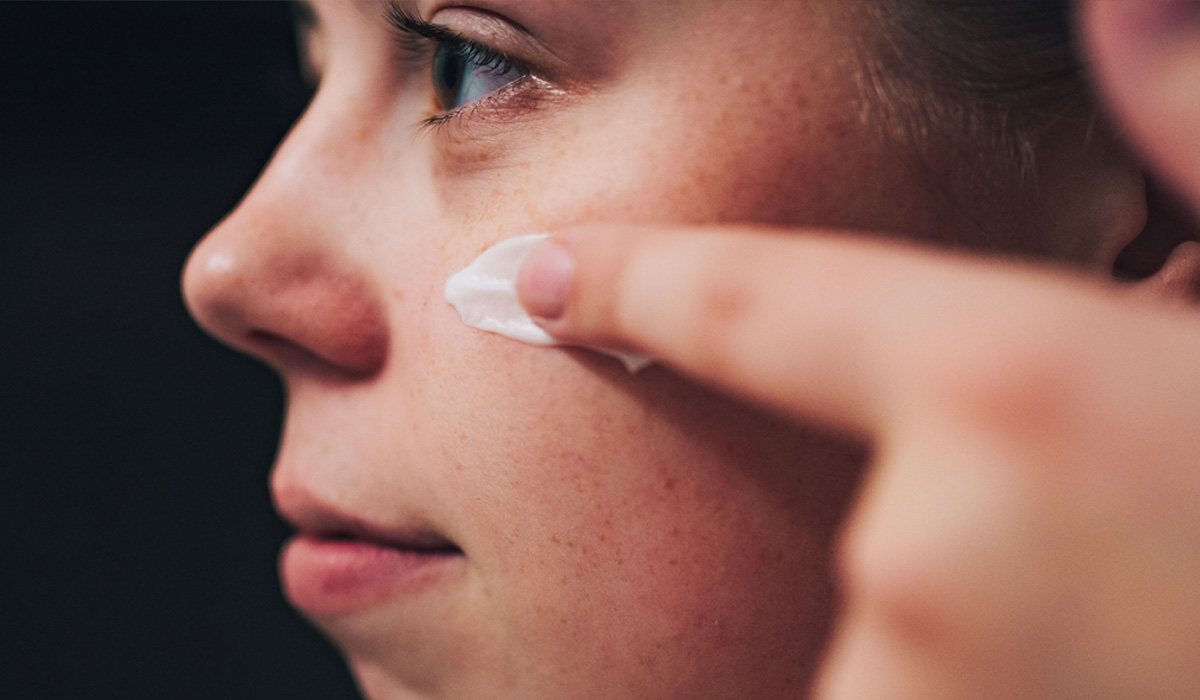
Do you know what the largest organ of your body is? It’s your skin! We all get dry skin sometimes and suffer the occasional breakout or sunburn. Unfortunately, skin care is often stigmatized as being only for the ladies. Regardless of gender or gender identity, it’s important for everyone to take care of your skin.
With a large array of products on the shelves, developing a skincare routine can be intimidating. We will go over some basic tips with you that will leave you feeling more confident and keep your skin glowing.
Know Your Skin Type
Before curating your skincare routine, it’s important to know your skin type so you can tailor your routine to meet your specific skin needs. It will also help you identify which products will work best for you. Here’s how to identify yours:
Oily skin often presents as a shiny complexion and is more acne-prone than any of the other types because your skin is producing excess oils.
This isn’t all bad, it means your skin will be slower to develop wrinkles than those with dry skin. For you it’s especially important to wash your face in the morning and at night, and to include an exfoliant a few times a week in your routine.
Dry skin is typically marked by general dryness and flaking. If you have this type of skin, you’ll want to use a hydrating cleanser that doesn’t disrupt the outer layer of the skin.
Look for alcohol-free products, such as toners, so they can cleanse the skin without causing further drying. Lastly, remember to moisturize day and night.

Sensitive skin is harder to identify because, at a glance, it can appear to be either of the above types. A good indicator is sudden changes to your skin’s appearance. These changes can be the result of specific chemicals, changes in the environment, and poor diet.
The best way to deal with sensitive skin is to establish and maintain a consistent skincare routine. If you already have one, consider simplifying it to a few basic steps and avoiding harsh chemicals and fragrances. You also may want to avoid long hot showers because sensitive skin tends to react negatively to prolonged heat exposure.
Washing & Cleansing
Wash your face in the morning, any time after exercise, and at the end of the night–this is especially important during COVID-19 because we’re all wearing masks that can trap dirt and oil against the skin.
Use a facial cleanser and warm, not hot water, to wash your face. There are lots of cleansers available for all different skin types.
Include an exfoliant in your skin care routine to use a few times a week. Exfoliating the skin is important because it can remove dead skin particles and unclog pores. Find a product that works and feels best for your skin–including the face and body. Some exfoliants can dehydrate the skin, so make sure to moisturize after use!
Moisturizing
Do this step after you’ve washed your skin and or used a cleanser. Skin needs lots of moisture to stay healthy. This skin care step is especially important to those with dry or combination type skins. Create a skincare routine that includes moisturizing your skin when you wake up and before going to bed. You’ll also want to apply moisturizer after washing or shaving to keep your skin hydrated.
As we move indoors in the winter months, the air can become dry and dehydrate the skin. If you notice that your hands and face, get especially dry during the winter months use a moisturizer. To keep the skin soft and smooth you’ll want to apply it numerous times throughout the day.
Drinking the recommended 8 glasses of water a day also helps keep your skin feeling soft and healthy.

Use SPF All Year Long
Many moisturizers contain SPF, but it’s also important to apply plain ole’ sunscreen on your skin before going outdoors. Sunscreen can help prevent sun damage and skin cancer.
This may be counterintuitive, but you need to use sunscreen in the winter too. Snow is a highly reflective surface. Although typically less skin is exposed to the sun in the winter compared to summer, it’s important to apply sunscreen to the face to avoid harmful sun rays.
Watch Your Shaving Technique
Before shaving, wet your skin and hair to loosen it–making it easier for shaving. Use a moisturizing shaving cream and shave in the direction of hair growth and rinse the razor after each swipe.
Don’t forget to wash the skin after shaving to remove any loose hairs and to apply moisture to the skin!
Maintain a Healthy Diet
Take care of your skin inside and out with a healthy diet. What you eat and drink can impact the health of the skin. This is especially true for those of you with a sensitive skin type. Eating a nutritious diet with vitamins and minerals, avoiding greasy foods, and drinking plenty of water every day can keep your skin glowing.
After hearing these tips, it may seem like a lot of effort to start taking better care of your skin so start small. Take it one step at a time and slowly add to your routine as you form a habit. Discover and Invest in the products that are right for you. The better care you take of your skin, you will feel more confident with each and every step.
Acne out of control and nothing seems to help? You may need acne medication to help keep it under control. Health & Wellness Services is here to help! You can meet with one of our providers via telehealth to see if acne medication is an option for you and your skin.